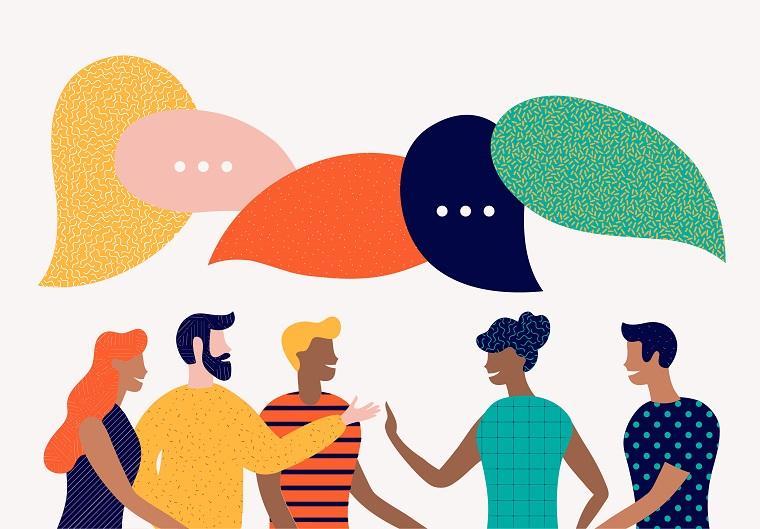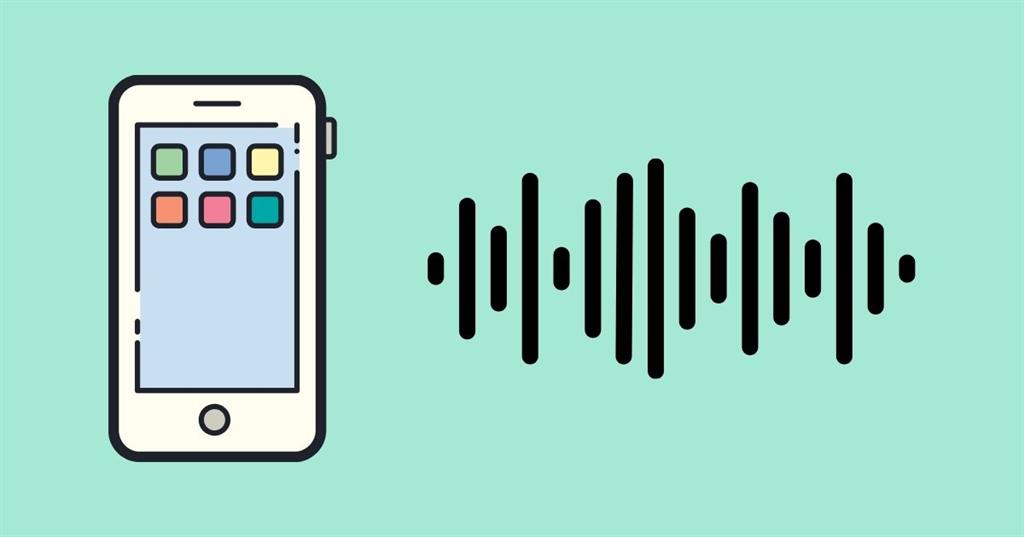
Social Audio is a magical marvel of 2020 that came into being when people were stuck in quarantine and indefinite shutdown. Social Audio’s popularity skyrocketed thanks to the pandemic enforced isolation, social distancing, and quarantine. By March 2020, approximately 3 billion people in more than 130 countries remained indoors, and almost 90% of the student population was cut off from schools. More and more people started logging into video chat platforms like Zoom and Google Meet, to connect with family, friends, and colleagues. This shot up the time spent on digital media.
An average US adult spent 7:50 minutes in 2020 with a screen, while children have spent approximately 4 hours a day, engaging themselves in video games, chatting, messaging, and watching entertainment programs online. It was exactly at this point when screen fatigue takes a heavy toll on people’s psyche! To overcome this, ‘Social Audio’, conversational social media audio came into existence. The clubhouse is a pioneering social audio platform and was introduced in February 2020.
Defining Social Audio

Social Audio is a combination of four elements, namely, social media, conversational tools, digital audio, and virtual event. It aptly filled the gap when humans were craving for a social connection and interaction. Before this time, social media platforms like Twitter, Facebook, YouTube, Snapchat, and to name a few, have promoted interactions through text, images, emojis, and streaming/video-based content. The audio was only complementary to visual media.
Social audio added the missing contextual cues of text messages, as the listener can make out the emotional context of the conversation in social audio. Podcasts might reach audiences with highly personalized messages, social audio is an extension to podcasts, adding personalized audience interaction to it. While the text is too short to convey exact meaning and video is too heavy, causing screen fatigue, Social Audio emerged as a just and apt Goldilocks medium for social interactions.
Till date, Clubhouse alone enjoys ten million users, and several other major social media platforms, including, Twitter, LinkedIn, Facebook, and Discord have entered the social audio space. There are as many as 43 entries, including startups like Fireside and Stereo, making headways in this field.
Social Audio as a Marketing Tool

For a long, companies have been using interactive calls for customer care and for building customer relations. They are meant to address customer grievances, technical issues, and transactional challenges they encounter during or after purchasing a product or service. Social audio is entirely different from telephonic or online interaction between companies and customers in many ways.
Unlike podcasts, where followers download them to listen at their convenience, social audio allows companies to have a live interaction with personalized information. Unlike press releases and marketing communication with buzzwords, where customer care representatives repeat them mechanically, interactive social audio allows thoroughly trained communicators to use humor, wit, and warmth in their discussion. Initially, Clubhouse prohibited sharing the social audio conversation in any form, including, recording, copying, and sharing. Of late, Clubhouse enabled users to share a Clubhouse room link on Twitter and agreed that it is recording the social audio sessions.
Companies can engage highly trained professionals to have a dialogue, discussion, and conversation with existing and prospective customers, which need not be a direct sales talk. Companies or brands can make the best use of their platform for influencer marketing, inspirational leadership talks, virtual brand promotion events, brand chats, and social listening. Given the competition among the social media platforms to enter this space, and allowing users to link social audio links to their social media accounts, they may get integrated with social media channels in the future.
Jeremiah Owyang, an Advisor to Fortune 500 companies on Digital Business has identified 20 different ways in which the business community can employ social audio as a marketing tool, including, but not limited to;
- Advocacy
- Employee Engagement
- Customer care
- Influencer marketing
- Education
- Entertainment
- Employee relations
- Cultural nuance analysis
- Heat maps
- Content optimization
Conversation forecasts, and to mention a few.
From data collection and analytics, social audio can serve the brands in many ways;
- Since conversations can be recorded, companies can extract rich data on customer preferences and attitudes.
- They can apply analytics to measure audience metrics to shed insights on the number of people attending, time spent on each session, and audience engagement on this platform.
- It allows companies to rate top influencers, the most trending topics of the time, and their reach to the audience so that they can build marketing strategies around them.
- They can measure click-through rates and CTA responses to reach a unique, niche audience with messages.
- Large scale emergence of Social Audio provides unique opportunities for innovations, including;
- Development of tools and techniques to analyze voice and emotional cues
- Software to analyze social network behaviors and the impact of influencers on the audience.
Brand Promotion through Social Audio

Social audio can be a powerful tool for brand storytelling, as it is one of the most popular ways of product launch and for creating brand awareness. Organizations can equally employ social audio as an effective tool for corporate training. The other brand promotional activities possible through social audio include,
- Sponsored Audio sessions
- Subscribers- only Social audio
- Branded Social Audio Chambers/rooms
- In-app ads, adding words, music, and storytelling
- Tipping options
- Fundraising
- Social audio as an e-commerce tool
Future Applications/Use Cases of Social Audio
- Social audio platforms can integrate with the podcast industry to circulate the recorded sessions of live social audio sessions.
- Creators and influencers can get integrated with the cryptocurrency platforms, and NFT to monetize their fandom.
- Several new tools to improve voice quality, voice filters for augmented voice experiences, and AI-enabled text to voice Bot translations may be integrated into social audio for enhanced user experience.
- Thematic chat or social audio rooms such as motivational rooms or rooms for brainstorming business ideas may appear.
- Companies prefer to integrate voice-enabled customer services to their websites for enhanced user experience.
- Social audio platforms can monetize customer data, sharing them with advertisers and governments.
- Social Audio Apps and In-app advertising space for the platforms.
Jeremiah Owyang predicted six new product categories from social audio
- Social Audio Analytics to record, analyze, and provide insights for better optimization of social audio conversations.
- Social Management systems that provide software to manage and integrate social audio networks like Clubhouse, Discord, and others in one go.
- Social Audio Enterprise Software will provide a class of enterprise-ready voice systems for use cases like employer-employee conversations and business-to-customer conversations.
- Social Audio Services and Advisors comprises a wide range of advisors to offer education, strategy, content planning, voice talents, executive training, analysis, and brand recommendations.
- A marketplace for voice and conversational skill-related talent.
Challenges to Social Audio
Social Audio is a nascent industry and getting measurable metrics is a great challenge. Toxic speech, including bullying, harassment, and discrimination have emerged as some of the pertinent challenges in social audio. Social audio content moderation and content curating demand specific skillsets and expertise, which are not readily available for this emerging industry.
Software Industry Responses to Social Audio Challenges
Intel is currently testing a new AI-powered tool called “Bleep” to identify and automatically remove offensive words from the audio content. Instead of removing abusive content of all types, including hate and discrimination, Beep will allow users to select whether they want none, some, most, or all of any particular content. AI-enabled filters to a certain extent can moderate content, while social audio platforms are currently handling such issues manually, by carefully examining the live social audio session. Going by the audience response to this medium and its adoption, manual referees for content moderation is said than done and the industry must gear up to find ways to tackle this issue.
Final Thoughts
Social audio is expected to skyrocket over the years to come. It is expected to expand beyond Clubhouse or Twitter spaces, with the entry of several other players, who are established brands and startups. Tech giants may equally step in to acquire popular social audio startups. Massive adoption and usage may lead to social audio integration into every digital touchpoint and may become part of digital interactions in the future, in addition to text-based comments and emotions.
